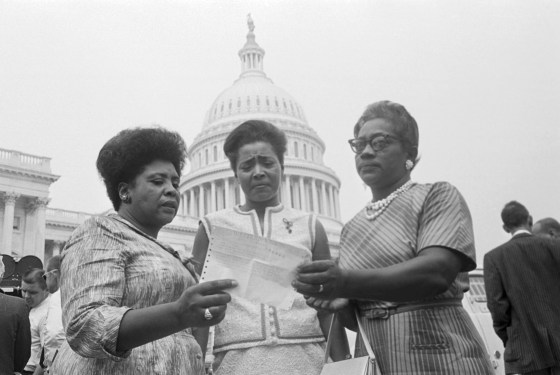During the summer of 1968, the 50-year-old civil rights activist Fannie Lou Hamer delivered a powerful speech on American democracy before a mostly white audience in Kentucky. In Hamer’s vision, all Americans committed to social justice needed to address the unfinished work of building democracy. “We have a grave problem that’s facing us today in this country and if we’re going to make democracy a reality, we better start working now,” she declared. White Americans could not simply sit on the sidelines or wait for progress to happen. They too needed to join the fight to save the nation. “It’s time for us to wake up,” Hamer advised members of the audience.
We have a grave problem that’s facing us today in this country and if we’re going to make democracy a reality, we better start working now.
FANNIE LOU HAMER, 1968
Hamer’s call for Americans to “wake up” is just as urgent today as it was then. Despite the legal gains of the modern Civil Rights Movement — namely, the 1964 Civil Rights Act, the 1965 Voting Rights Act and the Civil Rights Act of 1968 — the United States still fails to live up to the ideals of “life, liberty, and the pursuit of happiness.” On the surface, there exists a veneer of equal voting access that might send the message that all Americans hold some political power. A more detailed and honest examination of the United States — devoid of idealism and ideas of American exceptionalism — reveals a nation in need of urgent transformation.
Some of the social ills Hamer confronted during her lifetime remain with us today: voter suppression, economic inequality and state-sanctioned violence, to name just a few. The attacks on our voting rights exacerbate the issues we face. In 2013, the Supreme Court’s decision in Shelby County v. Holder greatly weakened the 1965 Voting Rights Act by undermining the use of preclearance — the process by which the federal government reviewed proposed changes to election law in states and counties that had a history of crafting legislation to block African Americans from the ballot box. Chief Justice John Roberts, in writing the majority opinion of the Court, reasoned that “our country has changed” since 1965, and therefore the jurisdictions covered by preclearance no longer merited the extra scrutiny. Since then, multiple state and local authorities have demonstrated the fallacy of Roberts’ ruling. They immediately chipped away at the Voting Rights Act, thereby undermining the protections that would ensure full voting access for marginalized U.S. citizens.
Two hundred and fifty years of enslavement followed by another 150 years of racist and exclusionary practices, including Jim Crow and redlining, deepened economic inequality in Black communities across the nation, and the racial wealth gap in the nation remains startling. As a group of researchers at the Brookings Institution recently concluded, “Wealth was taken from [Black] communities before it had the opportunity to grow.” And little has been done to improve these disparities, as demonstrated in a 2018 report by University of Bonn economists Moritz Kuhn, Moritz Schularick and Ulrike I. Steins. They concluded that “no progress has been made in reducing income and wealth inequalities between black and white households over the past 70 years.” It is therefore not surprising that a typical white family in the United States today has a median net worth of $171,000, nearly 10 times greater than that of a typical Black family. This stark racial disparity has fundamentally shaped the experiences of Black people as the barriers to accumulating wealth have impeded opportunities in every sector of society.
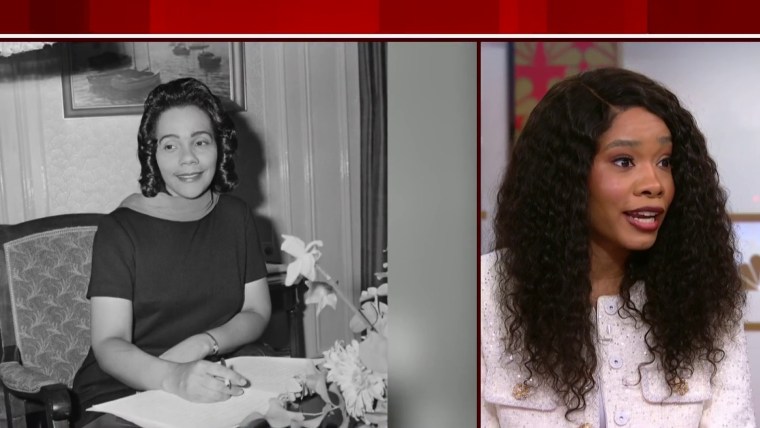
The systemic problem of police violence and brutality in Black communities across the nation mirrors the pervasive acts of lynching during the Jim Crow era. As a 2019 report revealed, police violence is now one of the leading causes of death for Black American men. Black women and girls are also vulnerable to police violence, as the African American Policy Forum’s 2015 “Say Her Name” report makes clear.
As disparities in maternal mortality rates and the disproportionate impact of COVID-19 diagnoses and deaths reveal, Black Americans experience poorer health care access and lower quality of care than white Americans. School districts with mostly white students receive significantly greater resources than do districts with mostly students of color. In recent years, the teaching of African American history has come under attack, as evidenced by the Florida Department of Education’s declaration that the AP course on African American studies “lacks educational value.” Conservative politicians have also put in place bills, such as Florida’s “Stop WOKE Act” and its so-called “Don’t Say Gay” law, that are an affront to democracy.
As the most subordinate group within racial and gender hierarchies, Black women have understood, perhaps more than others, what it means to live without full citizenship and human rights.
Because they occupy a marginalized position — shouldering multiple and intersecting forms of oppression, including racism, sexism and classism — Black women are uniquely positioned to combat injustices in our society. As the most subordinate group within racial and gender hierarchies, Black women have understood, perhaps more than others, what it means to live without full citizenship and human rights. By articulating a vision of freedom for themselves, Black women are also advocating for the liberation of all oppressed people. Their political advocacy and their efforts to strengthen American democracy therefore broaden the rights and opportunities for every person in the United States.
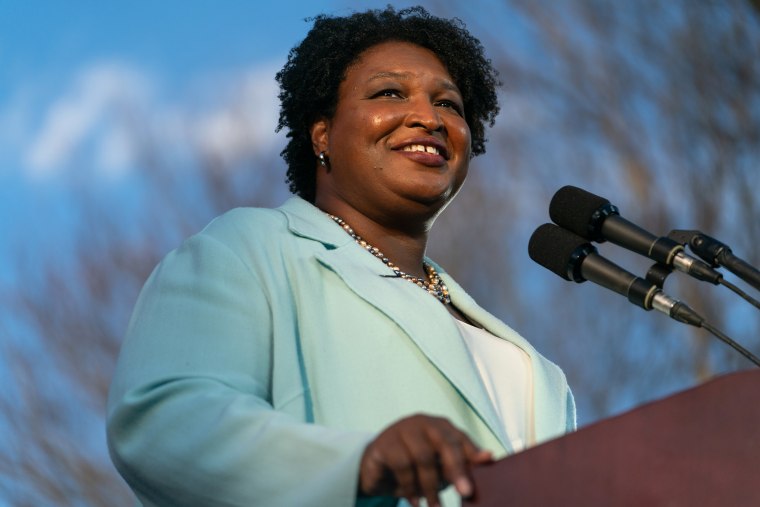
Black women’s robust participation in electoral and grassroots politics — they are one of the most consistent and therefore powerful voting blocs in the nation — stems from a long history of exclusion and marginalization that they have been passionately resisting for centuries. In 18th-century Massachusetts, for example, Elizabeth Freeman, an enslaved Black woman, sued for her freedom on the basis that the state constitution guaranteed equal rights for all. She won her case in 1781. In the aftermath of the Revolutionary War, free Black women across the country devised a range of strategies to challenge their exclusion from various aspects of society.
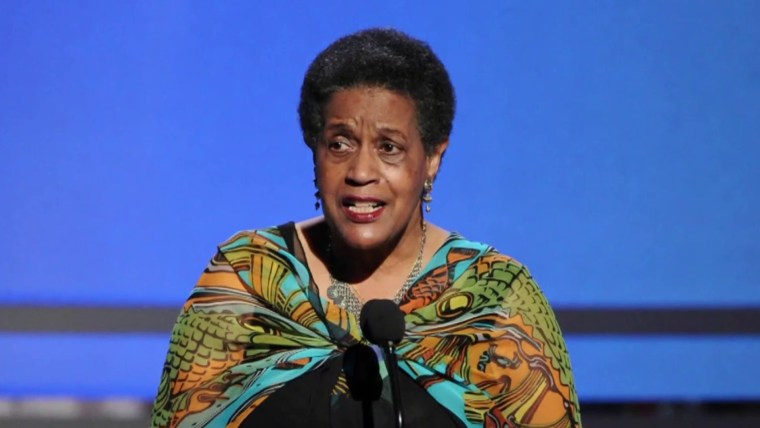
By the early 20th century, a cadre of Black women leaders rose to national prominence as they sought inclusion in the struggle for women’s suffrage. Ida B.Wells-Barnett — one of the most significant early civil rights activists — called for federal legislation to stop the lynching of Black people, a process that would take more than a century to complete. From the 1920s to the ’50s, Black radical women — including Black nationalists and women on the communist left — worked to expand the fight for citizenship rights beyond issues of racial violence and white supremacy to include demands for better health care, housing, education and more.
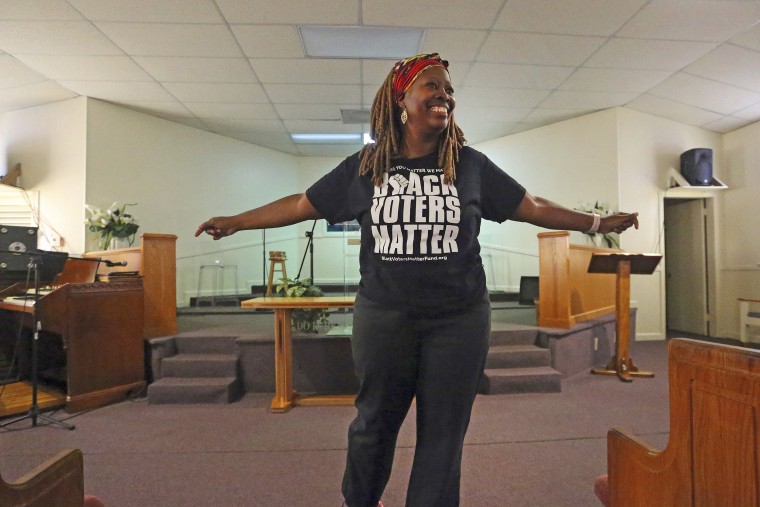
In the 1960s and ’70s, civil rights and Black Power activists built upon the legacies of earlier generations to lead a national movement to increase civil and human rights for Black Americans. Black women — including Hamer, Septima Clark, Ella Baker, Gloria Richardson and Angela Davis — were at the forefront of these efforts. These women recognized the flaws in American democracy, but they believed the United States was worth saving. Since then, numerous Black women leaders and activists — Stacey Abrams, Rep. Ayanna Pressley, D-Mass., LaTosha Brown, Imara Jones, Bree Newsome, Ayọ (formerly Opal) Tometi, Andrea Jenkins, Rep. Cori Bush, D-Mo., and many more — have been unwavering in their advocacy for the expanded rights and freedom of marginalized groups.
These women recognized the flaws in American democracy, but they believed the United States was worth saving.
Black women activists, intellectuals and leaders have been creating strategies and amplifying them at the local, national and transnational levels. They know, as Hamer did, that it’s time for Americans to “wake up” and commit themselves to dismantling systems of oppression that undermine the future of democracy.
Adapted from Wake Up America: Black Women on the Future of Democracy by Keisha N. Blain. Copyright © 2024 by Keisha N. Blain. Used with permission of the publisher, W. W. Norton & Company, Inc. All rights reserved.
